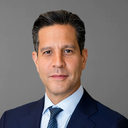Posted underBreast Implants q&a
Answers (24)
From board-certified doctors and trusted medical professionals
Dr. Steven Teitelbaum, MD

SM
Dr. Steven Teitelbaum, MD
Board Certified Plastic Surgeon
Answer
Dr. Stephen T. Greenberg, MD, FACS

SF
Dr. Stephen T. Greenberg, MD, FACS
Board Certified Plastic Surgeon
Answer
Dr. Jerome Edelstein, MD

JM
Dr. Jerome Edelstein, MD
Certified Plastic Surgeon
Answer
Dr. Rod J. Rohrich, MD

RM
Dr. Rod J. Rohrich, MD
Board Certified Plastic Surgeon
Answer
Dr. Farbod Esmailian, MD

FM
Dr. Farbod Esmailian, MD
Board Certified Plastic Surgeon
Answer
Dr. Otto Joseph Placik, MD

OM
Dr. Otto Joseph Placik, MD
Board Certified Plastic Surgeon
Answer
Dr. David Shafer, MD, FACS

DF
Dr. David Shafer, MD, FACS
Board Certified Plastic Surgeon
Answer
Dr. Brian S. Glatt, MD, FACS

BF
Dr. Brian S. Glatt, MD, FACS
Board Certified Plastic Surgeon
Answer
Dr. Jeffrey Weinzweig, MD, FACS
JF
Dr. Jeffrey Weinzweig, MD, FACS
Board Certified Plastic Surgeon
Answer
More Breast Implants Questions
See all Breast Implants Q&A
WE SEND PRETTY
EMAILS
What’s trending? Who’s turning heads? Which TikTok myths need busting? We’ve got you. No fluff, no gatekeeping—just real talk. Get our free, unfiltered newsletter.






